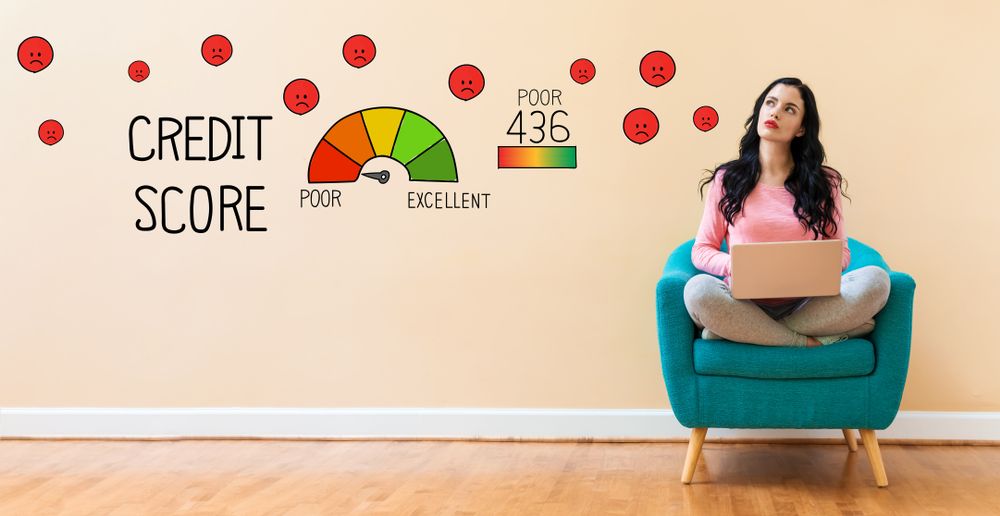
Ways to Improve Your Credit Score
A good credit score can result in a lower home mortgage rate or a car buying rate. We all try to maintain one. Sometimes, though, life throws us a financial curveball and that score declines. What steps can we take to repair it?
Reduce your credit utilization ratio. Your credit utilization ratio (CUR) is the percentage of a credit card’s debt limit you have used. Simply stated, if you have a credit card with a limit of $1,500 and you have a current balance of $1,300, the CUR for that card is 87%. Carrying lower balances on your credit cards may tilt the CUR in your favor and promote a better credit score.[i]
Review your credit reports for errors. You are entitled to receive one free credit report per year from each of the three major U.S. credit reporting agencies – Equifax, Experian, and TransUnion. You can request a report from all three at once. As the federal government’s Consumer Financial Protection Bureau notes, you can do this at annualcreditreport.com. About 20% of credit reports contain mistakes. Upon review, some borrowers spot credit card fraud; some notice botched account details or identity errors. At its website, the CFPB offers sample letters and instructions you can use to dispute errors.[ii]
Behavior makes a difference. Credit card issuers, lenders, and credit agencies believe that payment history paints a reliable picture of future borrower behavior. Whether you pay off your balance in full, whether you routinely max out your account each month, the age of your account – these are also factors affecting that portrait.[iii]
Think about getting another credit card. Your CUR is calculated across all your credit card accounts, in respect to your total monthly borrowing limit. So, if you have a $1,200 balance on a card with a $1,500 monthly limit and you open two more credit card accounts with $1,500 monthly limits, you will markedly lower your CUR in the process. There are potential downsides to this move – your credit card accounts will have lower average longevity, and the issuer of the new card will, of course, look at your credit history.1
Think twice about closing out credit cards. When you realize that your CUR takes all the credit cards you have into account, you see why this may end up being a bad move. For example, assume you have $5,000 in consumer debt among five credit cards and that each card has a $2000 limit. You have $10,000 in available credit. If you close two cards, you now only have $6,000 in available credit. In terms of CUR, you are now using 83% of your available credit card balance whereas before you were using 50%.[iv]
Beyond that, 15% of your credit score is based on the length of your credit history – how long your accounts have been open and the pattern of use and payments per account. This represents another downside to closing out older, little-used credit cards.3
Alternative credit scoring systems have also emerged. If your credit history has taken a big hit or is spotty, they may end up helping you out. TransUnion’s CreditVision Link, the LexisNexis Risk View Score, and the FICO XD2 and UltraFICO scores compiled by Fair Isaac Co. (FICO) are examples. They introduced new scoring criteria for borrowers who may be creditworthy but lack sufficient credit history to build a traditional credit score or need to rebuild their scores. Cell phone payments, cable TV payments, property records, and other types of data are used by these systems in order to set a credit score.[v]
To discuss ways to improve your credit score, call CapSouth to schedule an appointment with one of our advisors. 800.929.1001. Visit our website to learn more about CapSouth and the services we provide. www.capsouthwm.com
Investment advisory services are offered through CapSouth Partners, Inc., dba CapSouth Wealth Management, an independent registered Investment Advisory firm. Information provided by sources deemed to be reliable. CapSouth does not guarantee the accuracy or completeness of the information. This material has been prepared for planning purposes only and is not intended as specific tax or legal advice. Tax and legal laws are often complex and frequently change. Please consult your tax or legal advisor to discuss your specific situation before making any decisions that may have tax or legal consequences.
This
article contains external links to third party content (content hosted on sites
unaffiliated with CapSouth Partners). The policies and procedures governing
these third-party sites may differ from those effective on the CapSouth company
website, as outlined in these Disclaimers. As such, CapSouth makes no
representations whatsoever regarding any third-party content/sites that may be
accessible directly or indirectly from the CapSouth website. Linking to these
third-party sites in no way implies an endorsement or affiliation of any kind
between CapSouth and any third party, including legal authorization to use any
trademark, trade name, logo, or copyrighted materials belonging to either
entity.
[i] https://www.nerdwallet.com/blog/finance/credit-utilization-improving-winning/
[ii] https://www.consumerfinance.gov/about-us/blog/common-errors-credit-report-and-how-get-them-fixed/
[iii] https://www.cnbc.com/select/what-is-a-credit-score-and-how-to-check-yours-for-free/
[iv] https://www.fool.com/the-ascent/credit-cards/articles/dont-close-that-credit-card-without-asking-yourself-these-6-questions/
[v] https://www.creditcardinsider.com/blog/check-free-fico-score-every-other-free-credit-score/
